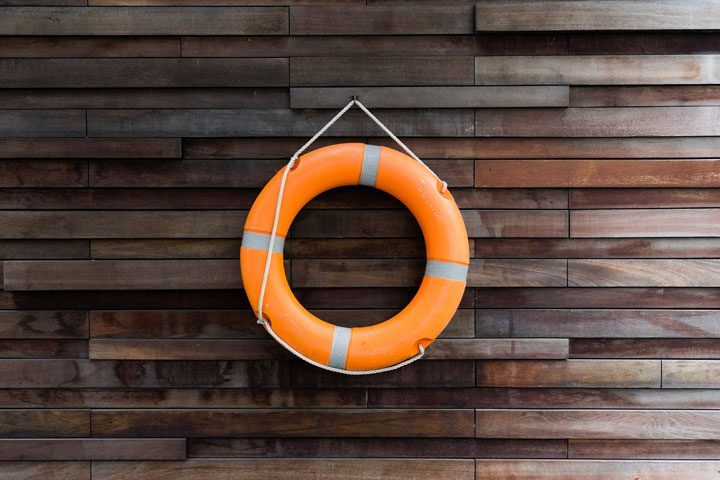
“Recovery support groups are helpful, but what if I’m not religious?”
This is a common question for many people considering post-treatment options for community and continued wellness. While it’s true many people find reinforcement of sobriety and healthful living through 12-Step programs such as Alcoholic Anonymous, Narcotics Anonymous, and similar groups, others prefer something different.
One primary reason for this is the majority of 12-Step programs ask an individual to defer to a higher power for the guidance and strength to maintain sobriety. This is Step One, and its messaging doesn’t resonate with some individuals. This doesn’t mean they’re agnostic or atheist, or something is “wrong” with them—it’s simply not their preference to engage with a support group in this manner.
LifeRing Secular Recovery is a group alternative that believes in “positive social reinforcement to empower the Sober Self.” Its mission statement says:
“In LifeRing, we offer each other peer-to-peer support in ways that encourage personal growth and continued learning through personal empowerment. Our approach is based on developing, refining, and sharing our own personal strategies for continued abstinence and crafting a rewarding life in recovery. In short, we are sober, secular, and self-directed.”
Conversely, other people do have a relationship with faith, but would also appreciate additional sobriety techniques that are more direct and pragmatic. An individual with these beliefs might build a stronger abstinence-based recovery system incorporating both 12-Step programs and LifeRing meetings.
How LifeRing Secular Recovery Works
Established in 2001 as a national organization, the non-profit LifeRing is based in California. In the U.S., it hosts in-person meetings in approximately 20 states. Around the world, gatherings are currently available in four countries. Although there isn’t a face-to-face LifeRing meeting in Arizona, there are online meetings and chat rooms to try. All interactions are confidential. They’re also free, although voluntary donations at meetings are welcome.
As a secular organization, LifeRing’s meetings don’t open with prayer. Instead, a “convenor”—the meeting facilitator—simply asks attendees “How was your week?” This question encourages them to discuss the past week of their recovery journeys and what they expect for the following week.
The only steadfast requirement to participate in a LifeRing meeting is you must have “a desire to be clean and sober, and you need to be clean and sober at the time of the meeting in order to speak.”
The organization also stresses that people don’t need to assign a label of “addict” or “alcoholic” unless they choose to refer to themselves in this way.
LifeRing follows a “3-S” philosophy:
- Sobriety: In this organization, sobriety means abstinence. It advises people to consider other support groups if they want to use substances or alcohol in any way. It reinforces the “Sobriety Priority” which it states “nothing is allowed to interfere with staying abstinence from alcohol and ‘drugs.'” LifeRing has a motto: “we do not drink or use, no matter what.”
- Secularity: Although established as a secular organization, LifeRing states it welcomes “people of all faiths and none.” It reinforces that individuals’ may keep their religious or spiritual beliefs—or the lack of them—private. It also stresses the importance of using human efforts to strengthen recovery.
- Self-Help: The organization believes a person’s motivation and effort to stay clean and sober are vital catalysts for long-term sobriety. It creates a workshop environment “where individuals can build Personal Recovery Plans.” LifeRing also ensures its methods are compatible with other abstinence-based counseling and therapeutic programs.
While the organization doesn’t have a sponsor program like some 12-Step programs do, it exercises a concept called “Empowering Your Sober Self.” Using the “S-to-S” connection, LifeRing creates a community of people who want to focus on the “sober self” rather than the “addict self.” This mindset helps people use positive reinforcement and guidance to maintain sustainable sobriety. The examples it presents are:
- “Last week, I celebrated a birthday without drinking—I’m so pleased!” (“Good for you!”)
- “I didn’t think I could do it but I stayed sober today.” (“If you can do it, I guess I can, too.”)
- “I’m fed up with my drinking/drugging life. I want something more.” (“That’s my feeling, too.”)
Instead of thinking as sobriety as an endless uphill climb, the organization believes this shared empowerment keeps the success of sobriety top of mind and more in touch with an individual’s natural self.
Too often, abstinence is associated with struggle, often instigated by negative thought patterns. You don’t have to be Sally or Sammy Sunshine all the time, but using the cognitive behavioral therapy techniques you learned during rehabilitation help you identify certain triggers which make you react unfavorably. LifeRing grounds its support meetings in an open forum discussion between individuals who understand your goals and can help you recognize these patterns.
Views of LifeRing
As a relatively new post-treatment support group, LifeRing is still being studied for effectiveness. However, one longitudinal study spearheaded by lead researcher Sarah E. Zenmore indicates that as a “mutual help alternative,” LifeRing—along with other secular support groups such as SMART Recovery and Women for Sobriety—seems to be as effective as 12-Step programs when attendees are committed to “lifetime total abstinence.”
Further, Zenmore’s research noted that it’s critical for individuals to find the most workable solution for them. For example, if someone completes treatment at an Arizona-based facility but only has 12-Step groups available, they might have to talk with their behavioral health clinicians to find ways to incorporate secular programs. Their interest might spark these groups to expand face-to-face meeting options nearby. More diverse support means a greater chance for recovery success.
Cottonwood’s Plan for Relapse Prevention
Our professionals work with every client to develop a comprehensive relapse prevention plan. Included are daily and weekly living schedules, contact information for support people and other resources, detailed relapse warning signs, and management skills for handling those triggers
effectively. We’re happy to provide whatever pathways you need to maintain wellness.






